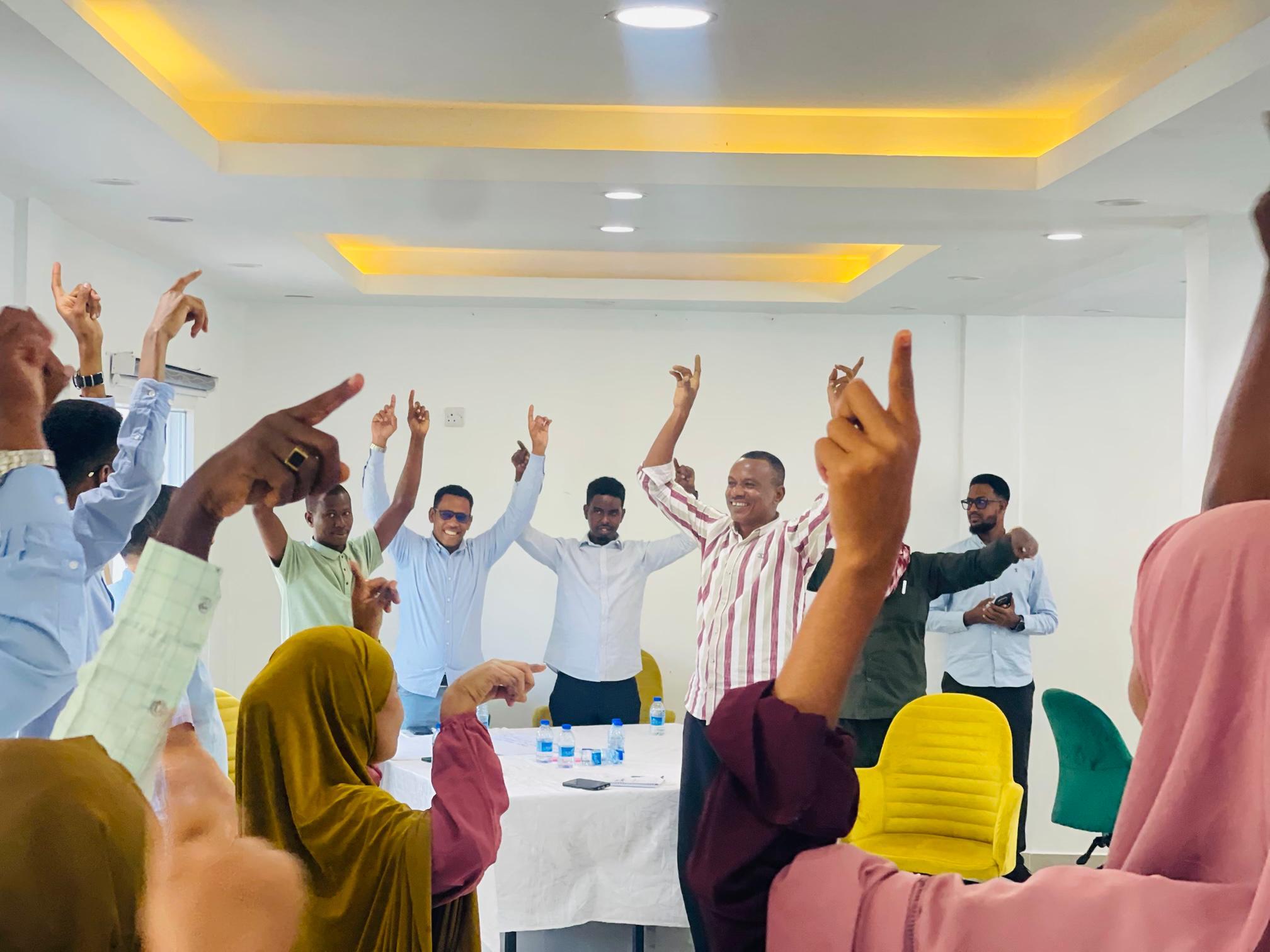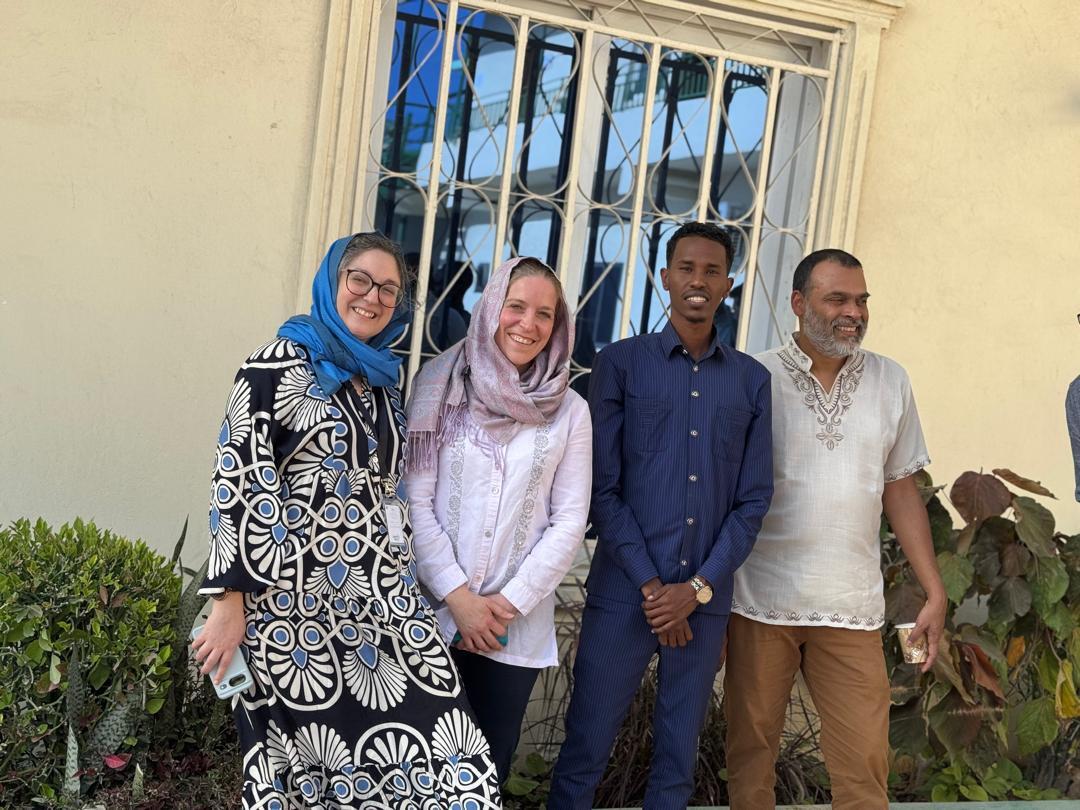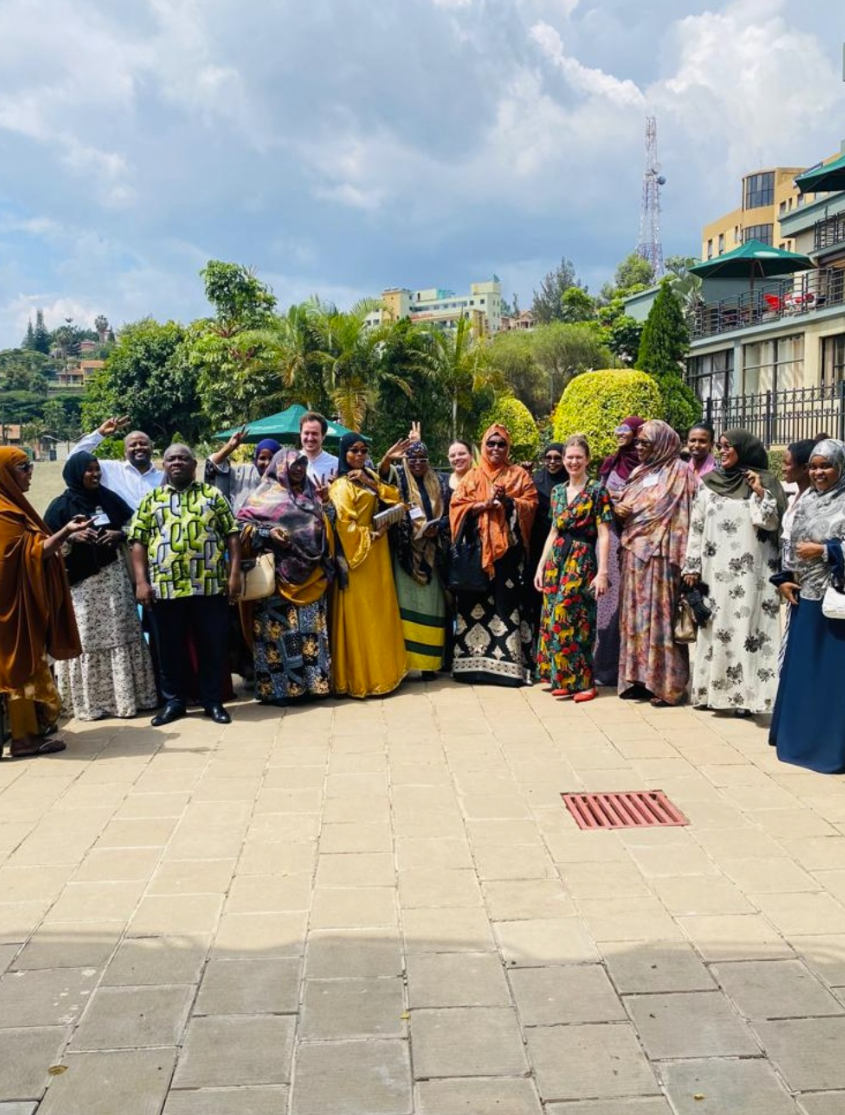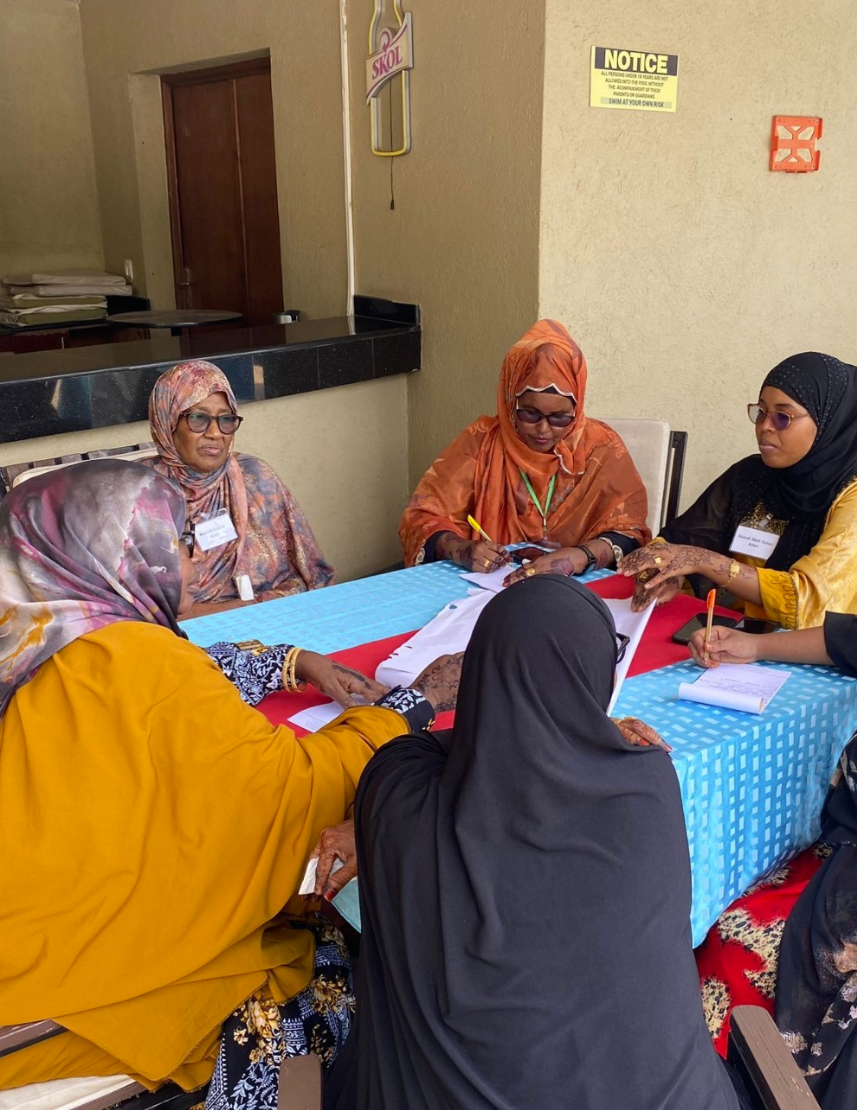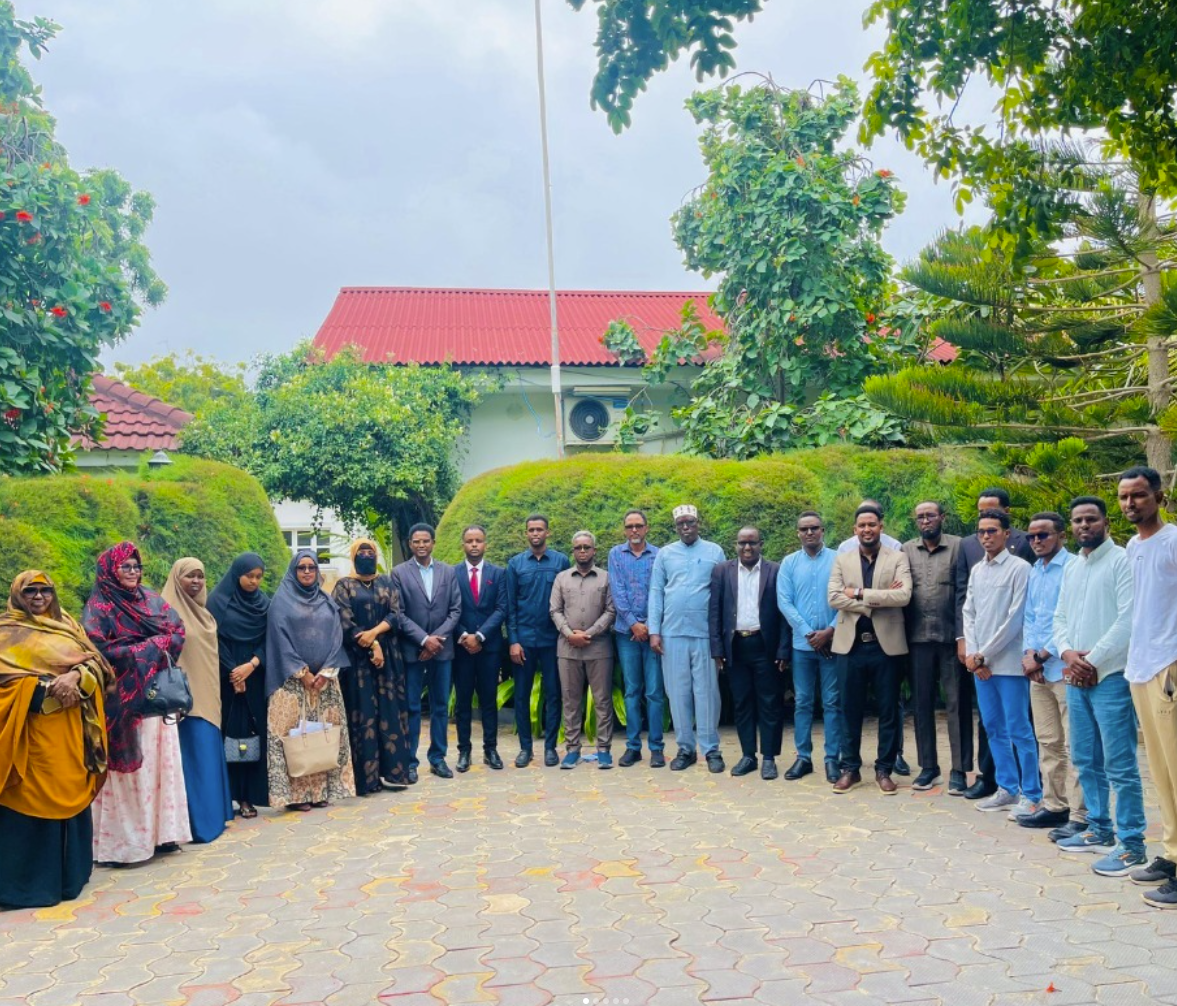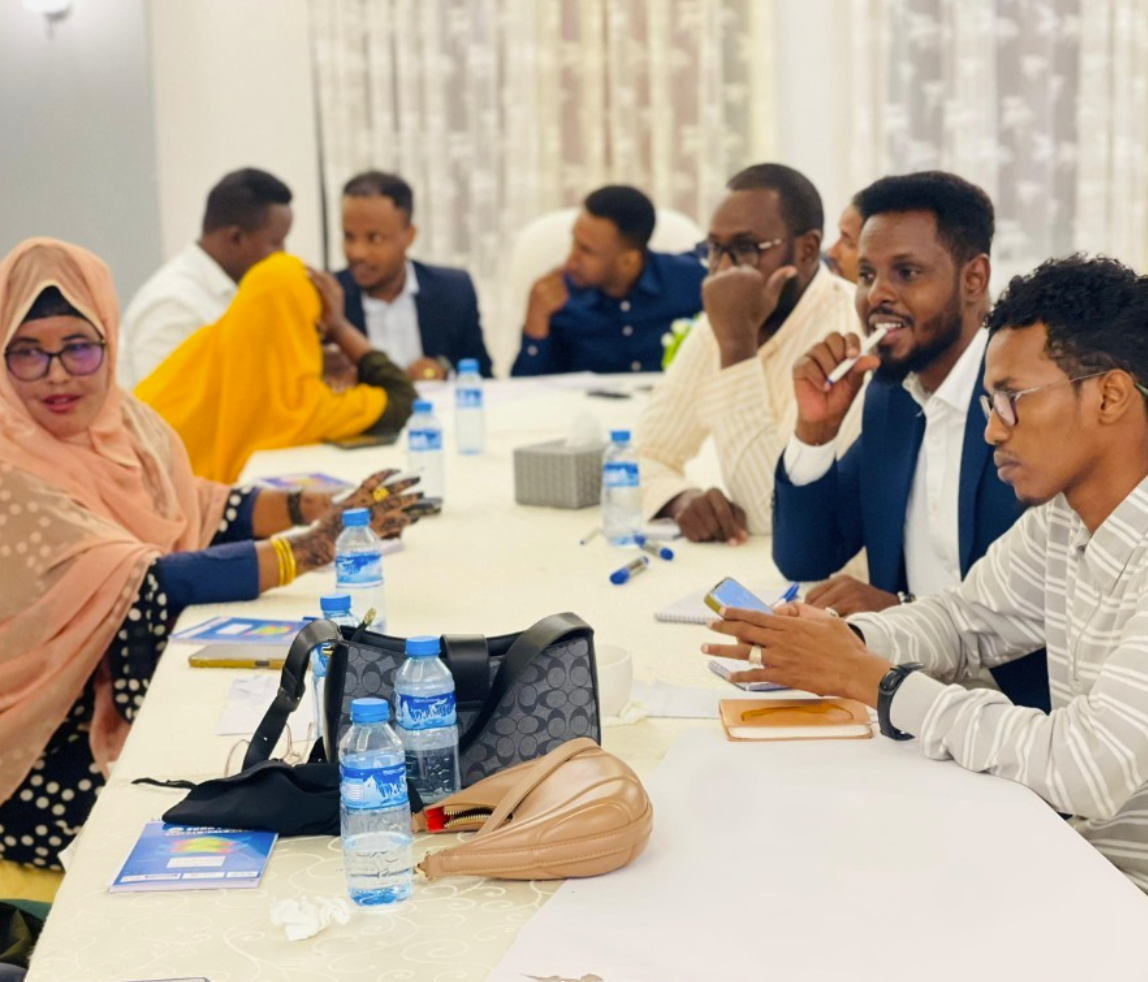FEATURE | 28 Mar 2025
Celebrating ten years of peacebuilding and conflict transformation in Somalia
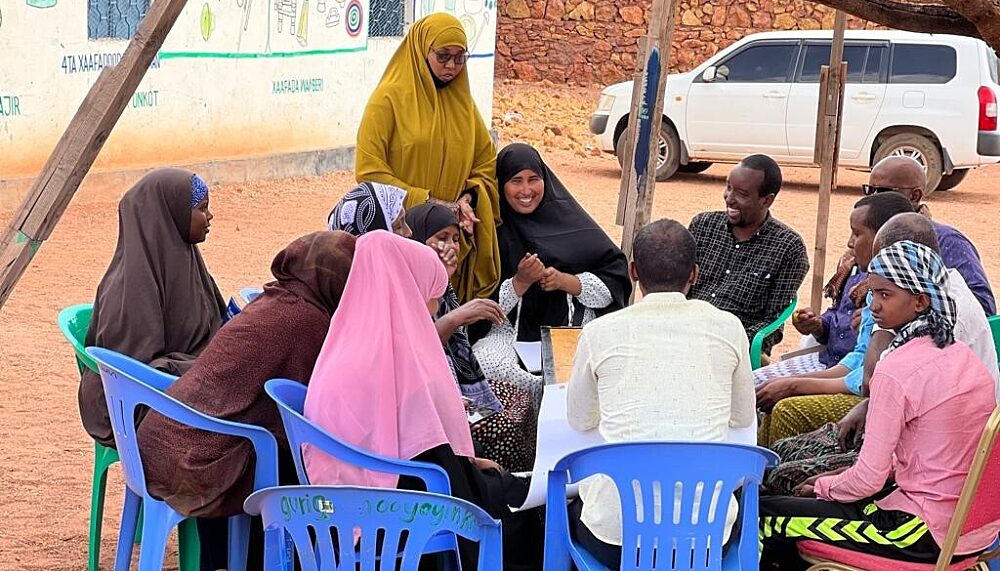
Since 2015, we have worked with community members and government actors to strengthen their capacity to facilitate dialogue and foster reconciliation in Somalia.
The roots of Berghof Foundation’s involvement in Somalia can be traced back to 2015 when the country was embarking on the process of federalisation. What began as a vision to support the Somali people in navigating the challenges of a changing governance system has since evolved into an extensive programme of supporting impactful conflict transformation initiatives. As we celebrate ten years of engagement in Somalia, it is worth reflecting on the journey, with its various achievements and challenges.
Responding to evolving conflict dynamics
An essential part of our decade-long engagement in Somalia has been to closely track the evolving dynamics of conflict and violence in the country through research and communication. Historically, violent conflict and structural violence have adversely contributed to the country’s social fabric and stability. Over time, our work has expanded beyond community dialogue and capacity development to include more direct engagement in conflict transformation, promoting sustained dialogue processes between communities, and building inclusive spaces for peacebuilding.
A significant factor exacerbating conflict and instability has been the impacts of climate change and environmental degradation. The country is facing an increasing number of weather-related disasters including floods, heat waves and droughts, which have depleted natural resources and livestock that communities are dependent on. Thousands of people have been displaced, and many have migrated from rural areas to urban centres in search of resources and safety. In response to these multi-layered challenges, our work has gradually expanded from large-scale community dialogues and capacity development activities to the adoption of an environmental peacebuilding approach. This includes raising awareness on the environment-climate-conflict nexus through radio, and engaging in conflict hotspots through climate security action planning and sustained dialogues.
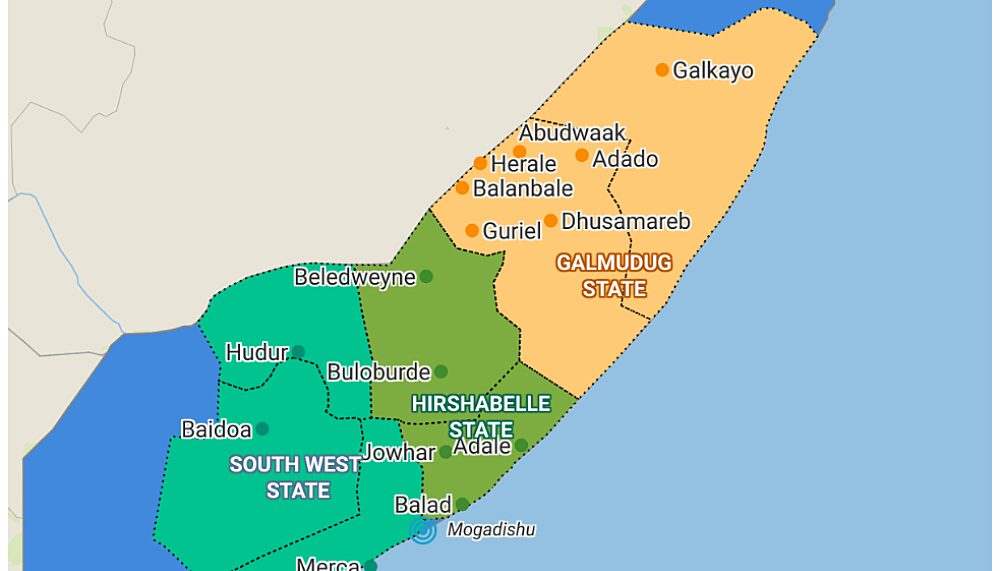
Reflecting on a decade
Several key milestones over the past decade highlight the impact of our support to peacebuilding efforts in Somalia.
Strengthening inclusive societal spaces
Our approach of inclusive conflict transformation aims to promote complementary peacebuilding roles and the diverse societal resources of different groups in society. This includes women, men, community leaders and elders, youth, the disabled, marginalised and vulnerable groups, religious leaders, educators, poets, and more. We use this approach in our community dialogues known as Shirarka. Building on the traditional male and elder-dominated format, we aim to highlight the voices of women, youth and minorities by creating a safe space for them to actively engage. Our Women, Peace, and Security (WPS) track aims to support the role of the women as peacebuilders and to amplify their voices in national and international discourses.
The Insider Peacebuilders Network (IPN) established in Hirshabelle in 2017 and Galmudug in 2020 is the cornerstone of our work. What began as an initiative with a small group of elders, activists, women and youth leaders in Hirshabelle has now grown into a vibrant network of 91 individuals working for peace. Strengthening the capacity of and motivating Somali citizens to act as “insider mediators” or “insider peacebuilders” has proven to be instrumental, as they have a deep understanding of local conflict dynamics and relationships that allow them to address conflicts effectively. Through a variety of workshops and trainings, the IPN members strengthen their mediation and dialogue facilitation skills, as well as engage in independent activities that foster peaceful co-existence and social cohesion in their communities.
Establishing a public platform for societal dialogue
In 2021, we launched the radio programme “Garasho-wadaag” meaning “sharing of knowledge” in Galmudug to foster public discourse on the interplay of climate change, environmental degradation and conflict. In 2023, we launched a similar programme “Hiloow”, meaning “longing”, in Hirshabelle. By bringing together local peacebuilders, experts, community members and government actors, we provide a platform for societal dialogue on how communities can collaborate on environmental peacebuilding. The two programmes build on traditional, cultural and religious resources to find ways of adapting to climate change and protecting the environment, while healing broken societal relationships.
This programme has done a lot in raising public awareness. Many people who used to fight over grazing lands and over water wells now let their animals graze and drink water together. They formed peacebuilding committees.
Abdifatah Abdullahi Hussein, Garasho-wadaag listener
(A collection of community quotes can be found here).
Leveraging community capacities to mitigate the impact of climate insecurity
In four key conflict hotspots across central Somalia, we have engaged with local communities to gather vital insights on how climate change and environmental degradation have impacted their livelihoods, as well as exacerbated conflict. Through the active support and contribution of the IPN, these conversations have raised awareness on these effects and contributed to the development of our Climate Security Action Plans (CSAPs). These plans are community-driven recommendations for addressing urgent challenges while building resilience and mitigating the devastating effects of climate change on both people and peace.
Overcoming challenges
Peacebuilding engagement in Somalia does not come without challenges. Security concerns remain the most significant one, with many areas of the country being inaccessible to peacebuilding actors. Additionally, working on sensitive issues like WPS requires navigating cultural barriers and overcoming stereotypes that limit women's participation in peacebuilding and leadership roles. Sensitively addressing psychosocial health challenges due to structural violence and violent conflict requires creative methods and continuous support. Finally, there is a great need for multi-sectoral partnerships that could provide the necessary technical and financial support to implement development, infrastructure and environmental needs.
In overcoming these challenges, a number of approaches of creating safe spaces for conflict transformation have proven useful. Our unique approach of multipartiality—active inclusion and empathy for all sides of a conflict—has been instrumental in fostering trust and collaboration between diverse stakeholders. Our approach of inclusive dialogue has amplified otherwise unheard community voices. Lastly, our environmental peacebuilding approach has played a crucial role in raising awareness and creating spaces for dialogue and collaborative action to address the climate-environment-conflict nexus.
Looking ahead: The next decade
As we look to the future, our focus is on deepening our impact and refining our methods, to ensure more systematic and connected processes that contribute to lasting change. We aim to strengthen our support for sustained dialogue processes in conflict hotspots, as they have already proven effective in building trust. We will gradually move towards an approach in which the IPN and their respective communities are able to self-sustain their infrastructures for peace. We hope to be able to build on our lessons learned in Hirshabelle and Galmudug States and expand our engagement in South-West State. Key to all of this are partnerships with the humanitarian and development organisations, as well as national, regional and international actors. We remain committed to supporting the Somali people in navigating their path towards a more peaceful, resilient, and stable society.
Media contact
You can reach the press team at:
+49 (0) 177 7052758
email hidden; JavaScript is required
